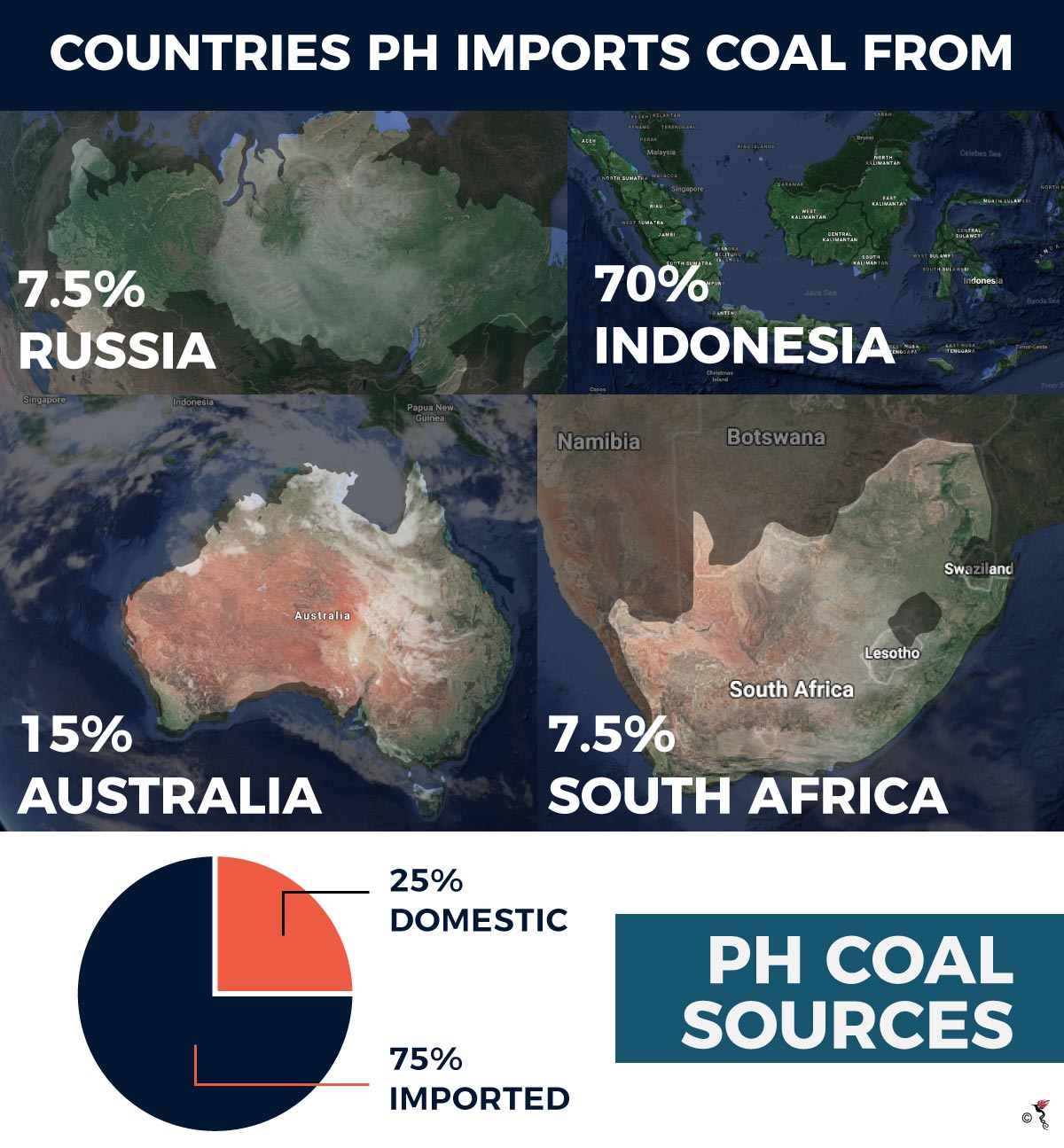The recent hike in coal tax in the Philippines by the Bicameral Conference Committee approving the adjustment of tax on coal from P10 per ton in 1977-2017, to P50 in 2018, P100 in 2019, and P150 in 2020, have sparked debate amongst experts and consumers.
The coal industry in the archipelagic nation has been exempted from paying excise tax for the past 40 years whereby the tax rate has remained unchanged since 1988, all this despite the industry’s rapid development in the country.
Sarah Jane Ahmed, an energy finance analyst, states in a report by the Institute for Energy Economics and Financial Analysis (IEEFA), that, “…the previous 20-year-old excise tax on coal is just PHP10 per ton–or about 20 cents per ton–making it essentially meaningless to producers while effectively encouraging energy policy that is harmful to the Philippines’ 100 million residents.
She also adds that the commitment to raise the coal tax is “…a move that could provide major economic, energy and environmental benefits.”

Source: Institute for Climate and Sustainable Cities
Economic benefits
While some may argue that the increase in coal tax will add more burden, they fail to see that adjusting coal's excise tax can generate more than PHP24 billion in its first 3 years of implementation alone. This means that its first-year cost of impact is minimal at only PHP1.50 per 100 kWh per month for every Filipino household.
Coal-fired power plants are currently the country’s biggest source of electricity. According to Fitch Group’s BMI Research in an August 2017 report, it is projected to be the primary driver of growth in the infrastructure segment over the next 10 years.
“The Philippines government knows coal’s effects are problematic; it currently is planning to boost spending on health care by PHP 272 billion (US$5.44 billion), and the Duterte administration has broader plans to invest PHP1 trillion (US$20 billion) in public anti-poverty programs.”
“Certainly at least a part of these funds could be raised via a more suitable coal tax,” Sarah commented.
Environmental advantages
Increasing the tax will actually be an important step towards addressing coal’s real costs – the damages it brings to the environment. According to IEEFA, coal-linked air pollution in China cut the country’s gross domestic product by an estimated 6.5 percent (roughly US$715 billion) in 2016. India, on the other hand, spent an estimated US$140 billion for health care costs related directly to air pollution in 2013 and 2014.
Many environmental agencies and civil society organisations in the Philippines have shown their support for the tax adjustment. Atty. Angela Consuelo Ibay, WWF-Philippines' Head of Climate and Energy Program said, "Companies need to embrace sustainability as a business imperative. Extreme weather events, climate disasters, resource depletion, ecosystem loss and pollution can cause major disruptions on businesses' value chain and productivity, and can debilitate our economy.”
Apart from that, Khevin Yu, Climate and Energy Campaigner for Greenpeace Philippines also said, “…while the tax adjustment is a historic victory, the fight is far from over in ending the age of coal and limiting the global temperature increase to 1.5 degrees Celsius. We owe this to every Filipino who is at the forefront of climate impacts. And the coal industry still owes a lot.”
A transition to clean energy
With the current situation, IEEFA asserts that the Philippines could be a major beneficiary of the current global shift to clean energy. Elected leaders have the power in their hands to take firm action through the sanctioning of this increased coal tax. This will further drive the country’s electricity-generation sector towards sustainability.
“We will continue to work with partners to expose the true costs of coal, and to empower communities and the government in transforming our energy systems to renewable sources, which are the real cheaper, safer and cleaner alternatives. The vision is to power the country’s development with 100% RE,” Khevin added.
Recommended Stories:
